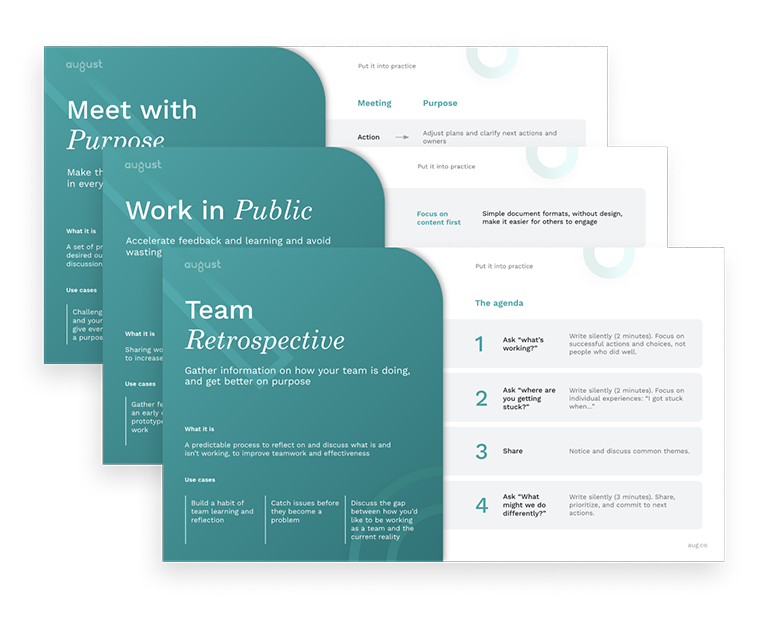Published February 16, 2022 | Updated August 14, 2024 | 2 minute read
As return-to-work plans are delayed for the third or fourth time, many companies are coming to terms with the fact that hybrid work is here to stay. They’re investing in new tools and policies, from home-office stipends to 360° cameras, in an effort to make the “new normal” more functional and sustainable for employees.
But tools, technologies and funds are just table stakes. When it comes to hybrid work, we need to be thinking about the higher order of needs, and building an intentional culture to meet them.
Leaders should be openly discussing big questions like:
- How do we create a culture of inclusion and belonging in a hybrid space?
- What does an equitable work experience look like in this environment?
- How do we make sure that voices are being heard across every modality?
- How do we connect with each other, our teams, and most importantly, our purpose and values within a hybrid environment?
- What is the ideal employee experience we are trying to create?
The answers to these questions can help shape the rituals, agreements, norms and cultural expectations of your hybrid workplace, and illuminate new potential practices that can put your values into action.
For example, think about what it means to value inclusion in hybrid meetings. We already know that marginalized voices are often structurally sidelined in regular meetings, but how does a hybrid environment exacerbate this problem? And what are some operational practices that can help balance it out?
It’s about making space in meetings to call deliberately on each person and invite their perspective, rather than expecting people to read cues and jump in, especially over a screen. Simple practices like speaking in a round and giving people sacred, uninterruptible space can make a huge difference in each employee’s sense of engagement and inclusion.
Modern employees want their leaders to anticipate and address these kinds of issues. The same forces that brought hybrid work into the mainstream have also brought about the Great Resignation, and employees are viewing these transitions through that lens. They expect their employers to articulate how purpose, flexibility and equity will manifest in the hybrid workplace. They want their work to have a meaningful impact, and their voices to be valued and heard.
The transition to hybrid work is a challenge, but also an opportunity. As companies restructure how they function day to day, they have a unique chance to build inclusion and connection into their workplace culture from the ground up. This is key to the success and retention of employees in this new era of work.
Learn more at aug.co/hybrid








